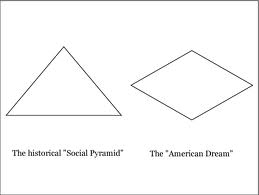mpeirce
Thinks s/he gets paid by the post
Apparently much of the data supporting this book turn out to be bogus...
Facts Are Stubborn Things . . . As Thomas Piketty Is Beginning to Find Out - Pejman YousefzadehThe charges are devastating, and there is plenty to back them up. And again, let’s be abundantly clear: The Financial Times is accusing Thomas Piketty of dishonesty, of making up his arguments, of actively trying to mislead readers and actively trying to mischaracterize inequality trends. This mischaracterization leads to policy prescriptions on Piketty’s part that are both entirely unrealistic in their design and implementation, and, more importantly, are wholly unsupported by the actual data on inequality. The main thrust of Thomas Piketty’s book is entirely undermined, and his arguments and conclusions are annihilated. It is hard to imagine a more comprehensive refutation.




